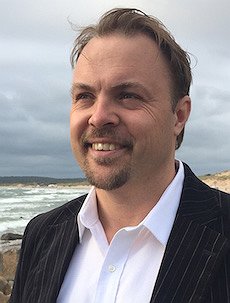A Vision of Miking: Interactive Programmatic Modeling, Sound Language Composition, and Self-Learning CompilationNEW IDEA
This paper introduces a vision of Miking, a language framework for constructing efficient and sound language environments and compilers for domain-specific modeling languages. In particular, this language framework has three key objectives: (i) to automatically generate interactive programmatic modeling environments, (ii) to guarantee sound compositions of language fragments that enable both rapid and safe domain-specific language development, (iii) to include first-class support for self-learn-ing compilation, targeting heterogeneous execution platforms. The initiative is motivated in the domain of mathematical modeling languages. Specifically, two different example domains are discussed: (i) modeling, simulation, and verification of cyber-physical systems, and (ii) domain-specific differentiable probabilistic programming. The paper describes the main objectives of the vision, as well as concrete research challenges and research directions.
David Broman is an Associate Professor at the KTH Royal Institute of Technology in Sweden, where he is leading the Model-based Computing Systems (MCS) research group. Between 2012 and 2014, he was a visiting scholar at the University of California, Berkeley, where he also was employed as a part time researcher until 2016. David received his Ph.D. in Computer Science in 2010 from Linköping University, Sweden, and was appointed Assistant Professor there in 2011. He earned a Docent degree in Computer Science in 2015. His research focuses on model-based design of time-aware systems, including cyber-physical systems, embedded systems, and real-time systems. In particular, he is interested in modeling language theory, formal semantics, compilers, and machine learning. In 2017, he was awarded the individual grant for future leaders (FFL 6) from the Swedish Foundation for Strategic Research (SSF). David has worked several years within the software industry, co-founded the EOOLT workshop series, and is a member of IFIP WG 2.4, Modelica Association, and the TAACCS steering committee.
Mon 21 OctDisplayed time zone: Beirut change
14:00 - 15:30 | |||
14:00 30mTalk | Operationalizing the Integration of User Interaction Specifications in the Synthesis of Modeling Editors SLE 2019 Vasco Sousa Université de Montréal, Eugene Syriani Université de Montréal, Khady Fall Université de Montréal | ||
14:30 20mTalk | A Vision of Miking: Interactive Programmatic Modeling, Sound Language Composition, and Self-Learning CompilationNEW IDEA SLE 2019 David Broman KTH Royal Institute of Technology | ||
14:50 20mTalk | Shadow Models [Tool Demo] -- Incremental Transformations for MPSDEMO SLE 2019 Markus Völter itemis/independent, Klaus Birken itemis AG, Sascha Lisson itemis AG, Alexander Rimer itemis AG | ||
15:10 20mTalk | The Lands Platform: Lan.guages and D.omain S.yntax, Tool DemoDEMO SLE 2019 Nick Papoulias Université Grenoble Alpes, France | ||
